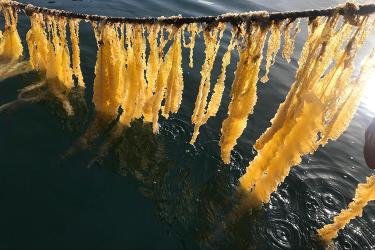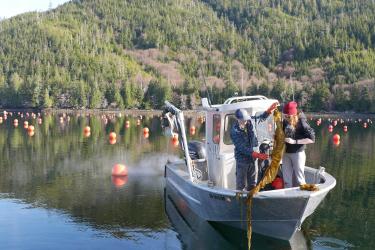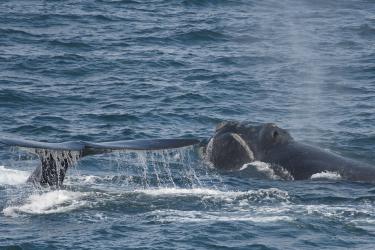Beluga whales (Delphinapterus leucas) reside year-round in the waters of Cook Inlet, Alaska, where they are accessible to residents and visitors of the state’s largest city, Anchorage, home to 42% of the state’s population. Concern about the high level of human-caused mortality on this small population of whales prompted the National Marine Fisheries Service (NMFS) to designate Cook Inlet beluga whales as depleted under the U.S. Marine Mammal Protection Act in 1999. With an estimated decline of nearly 50% between 1994 and 1998, the Cook Inlet population has remained between 300 and 400 animals since 1999. The failure of the population to recover led to an endangered listing under the U.S. Endangered Species Act in October 2008. As of June 2010, the population still only numbered about 340 beluga whales.
The NMFS Alaska Fisheries Science Center National Marine Mammal Laboratory (NMML), in cooperation with the NMFS Alaska Regional Office (AKR), has conducted Cook Inlet beluga whale research on an annual basis since the early 1990s. NMFS began calculating annual estimates of abundance for the Cook Inlet beluga whale population in 1993. Aerial surveys are flown in a twin-engine, high-wing aircraft at an altitude of 244 m (800 ft) and speed of 185 km/hour (100 knots). The abundance study includes surveys of all coastal areas (flown 1.4 km offshore) around most of the inlet and over 1,000 km of transects crisscrossing the inlet, effectively searching roughly 30% of Cook Inlet’s total area. These annual surveys indicated that the population declined nearly 50% between 1994 and 1998 and that it has remained between 300 and 400 animals since 1999. NMML scientists estimated the Cook Inlet population at 340 beluga whales in June 2010.
Additional Resources
- The Endangered Beluga Whales of Cook Inlet, Alaska
- Aerial Surveys of Belugas in Cook Inlet
- Aerial Surveys of Belugas in Cook Inlet 2001-2002
- Surveys of Beluga Whales in Cook Inlet
- Acoustic Monitoring and Prey Association for Beluga Whale
- Development of Beluga Capture and Satellite Tagging Protocol in Cook Inlet, Alaska
- Beluga Whale Satellite-Tagging and Health Assessments in Cook Inlet, Alaska, 1999 to 2002



